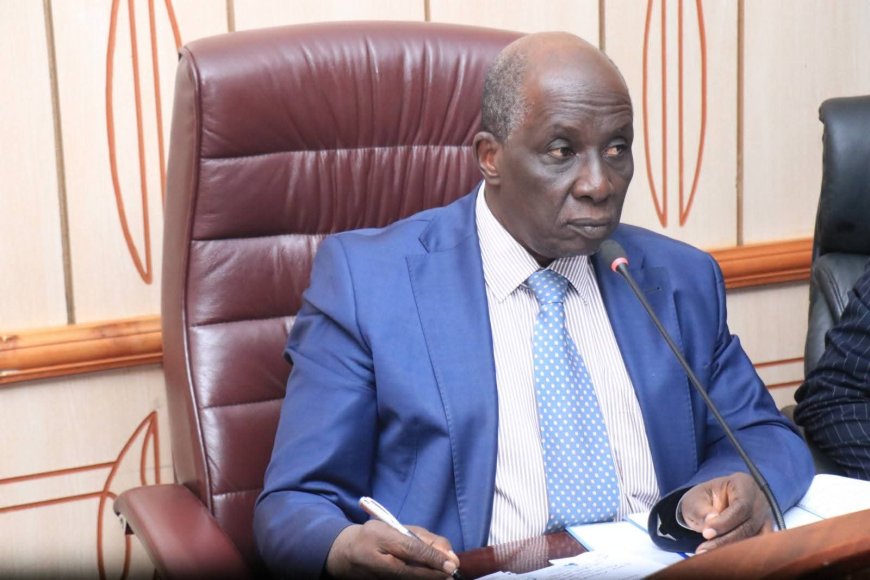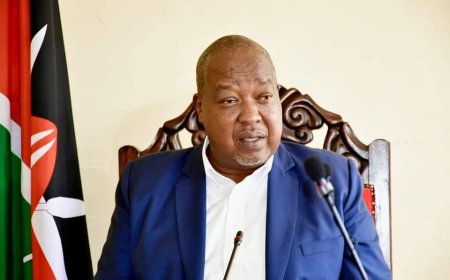Parliament calls for dialogue between SHA and Healthcare service providers over UHC transition challenges

BY ERIC ABUGA
The National Assembly’s Departmental Committee on Health has proposed a joint forum bringing together the management of the Social Health Authority (SHA) and the Consortium of Healthcare Providers (CoHP).
This is aimed at addressing key challenges disrupting the delivery of health services during the ongoing transition to the SHA system.
Seme MP Dr. James Nyikal, who chairs the committee, said the committee had received several concerns from a consortium of private and faith-based healthcare providers.
Among the critical issues raised, Dr. Nyikal noted, were uncertainty over the ownership and management of the SHA provider portal, inefficiencies in the claims processing system, and delayed payments reportedly affecting up to 53 per cent of submitted claims.
Additionally, the providers highlighted a high rejection rate of around 90 per cent for claims and mounting debts carried over from the previous system.
“We believe there is space for constructive dialogue,” Dr Nyikal said. “From our side, we have gathered the necessary information, and this committee views its role as facilitating engagement between the Ministry of Health and the consortium to ensure the system functions more effectively.”
The Seme legislator emphasized the committee’s commitment to finding solutions that will ease the transition to the new health financing framework and ensure uninterrupted delivery of healthcare services to Kenyans across the country.
He made these remarks during a follow-up meeting between the National Assembly’s Departmental Committee on Health and representatives of private and faith-based organizations to discuss the implementation of Universal Health Coverage (UHC), the transition to the Social Health Authority (SHA), and other related policy matters.
During the meeting, the Consortium of Healthcare Providers (CoHP) urged the Government to address the cash flow challenge they have been experiencing under the Social Health Authority (SHA), stating that they have yet to receive at least 53 per cent of their dues.
This, even as they raised concerns that the Universal Health Coverage (UHC) now stands at risk due to issues ranging from financial shortfalls, opaque systems, and weak implementation.
Led by Rural and Urban Private Hospitals Association of Kenya (RUPHA) Chairman, Dr Brian Lishenga , the consortium sought the intervention of the committee on the need to unlock UHC through digital health, saying that there should be a hybrid digital health architecture.
“We support a national strategy that blends the strengths of the SHA provider portal model with those of Integrated Health Technology Systems (IHTS), ensuring compliance, innovation, and provider autonomy,” he said.
According to Lishenga, recent SHA provider portal changes have led to the removal of maternity and inpatient bed capacity from all level two facilities, irrespective of their existing maternity infrastructure and licensing.
Similarly, level three facilities that do not have operating theatres, despite being licensed for inpatient care, were also removed.
“This has resulted in significant disruptions in service delivery, denial of SHA reimbursement for eligible services, and barriers to access for maternal and inpatient care- particularly affecting rural, peri-urban and underserved regions,” Lishenga said.
According to the 2023 Kenya Health Facility census, Lishenga told the committee that some 3,478 maternity beds, or 18.6 per cent of national capacity, have been affected.
Similarly, some 1,080 delivery beds or 28.6 per cent of national capacity are no longer available, while an estimated 10,000 inpatient beds across 1,138 downgraded level 3B facilities have been removed from the SHA system.
The most affected counties are Mandera, Turkana, Wajir, Marsabit, Garissa and urban informal settlements across Nairobi and Mombasa.
“The committee’s urgent intervention is required to reverse unintended policy effects that undermine Kenya’s commitment to UHC,” he said.
Unless reversed, RUPHA said there will be compromised maternal and emergency outcomes, disproportionately penalize compliant facilities in lower-income regions, and undermine trust and participation in SHA-led health reforms.
They also want the establishment of a structured accreditation framework, saying the Digital Health Agency (DHA) should be mandated to accredit health vendors based on clear, published criteria, such as biometric validation capacity so that local and established vendors can participate.
What's Your Reaction?
 Like
0
Like
0
 Dislike
0
Dislike
0
 Love
0
Love
0
 Funny
0
Funny
0
 Angry
0
Angry
0
 Sad
0
Sad
0
 Wow
0
Wow
0

















































